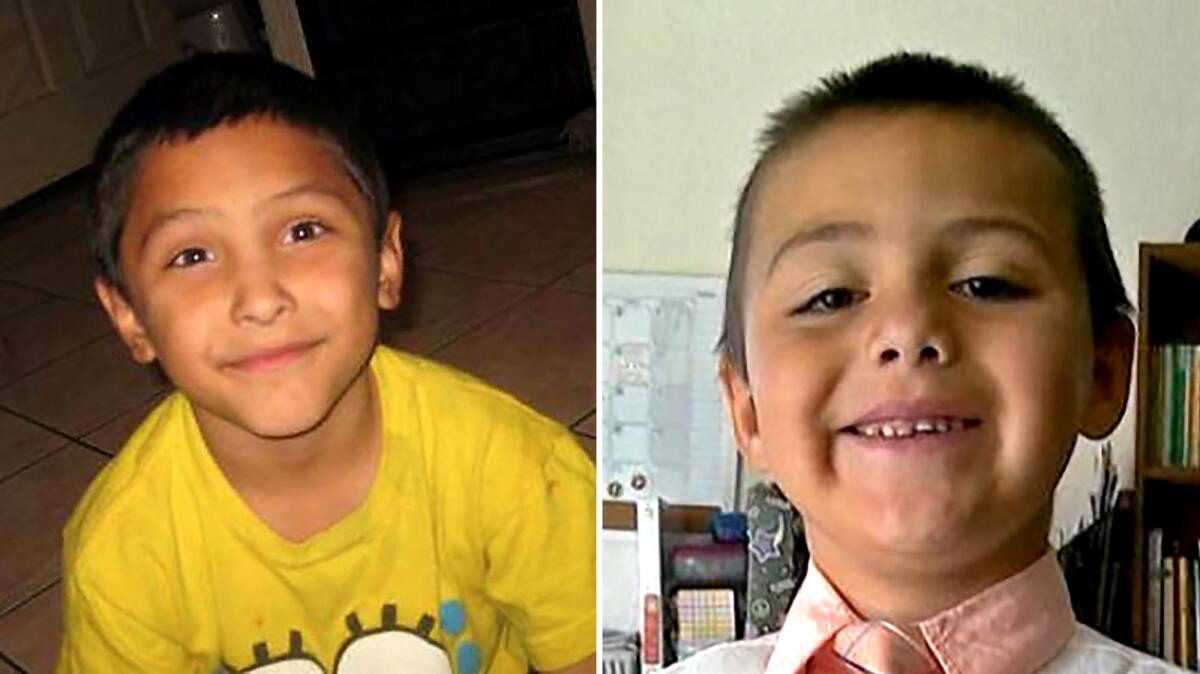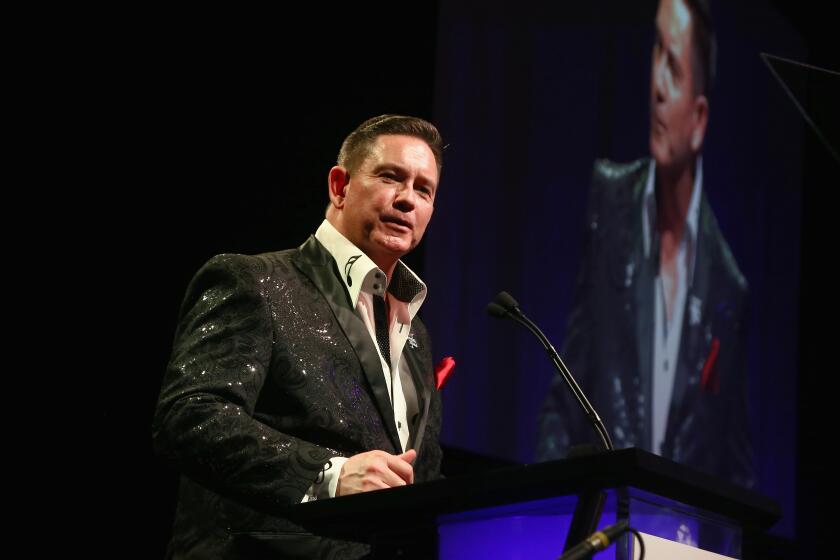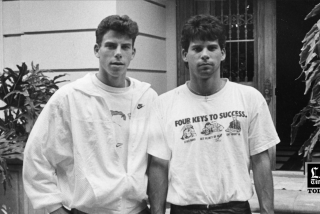Counselor who didn’t report abuse of Gabriel Fernandez, Anthony Avalos put on 4-year probation

- Share via
A state licensing board has imposed a four-year probation on a contracted L.A. County counselor for failing to report the suspected abuse of Gabriel Fernandez and Anthony Avalos, two young boys whose deaths spotlighted egregious lapses in the region’s child welfare system.
In a decision that took effect March 31, the state Board of Behavioral Sciences placed Barbara Dixon, a licensed marriage and family therapist, on probation and required her to participate in psychotherapy, law and ethics training, and coursework in child abuse assessment.
The state board had formally accused Dixon last year of failing to report allegations of abuse of Gabriel in 2013 and Anthony in 2015. Dixon also faced charges by the licensing board of gross negligence and unprofessional conduct, according to records.
Dixon’s conduct was first reported to the state board in 2019 by an anonymous complaint that contained an article The Times published the same day on her involvement in both children’s cases. To resolve the disciplinary case with probation, Dixon relinquished her right to contest the pending charges.
Her attorney, Gina Lacagnina, did not respond to a message seeking comment.
Dixon provided in-home counseling services to both boys through her job with what was then named Hathaway-Sycamores Child and Family Services, a Pasadena nonprofit that contracts with L.A. County to provide child welfare, mental health, foster care and other services. Last summer, the organization changed its name to Sycamores.
About a month before Gabriel was killed in 2013, Dixon wrote in her notes that the boy had “visible injuries on his body (scrapes, bruises, etc.)” and that he was limping and had a black eye. Dixon questioned the boy in front of his mother and wrote that the boy “spoke at a low pitch” and repeated his mom’s account that he fell off a bicycle.
The case of Gabriel Fernandez, a child who was killed after having been beaten, burned and shot with BBs, took a new twist when four social workers were charged with child abuse.
Gabriel’s mom was to provide a doctor’s note regarding treatment of those injuries at their next session with Dixon, but Gabriel’s mom missed the appointment. There were no notes showing Dixon had ever followed up on the medical treatment or the status of the child’s injuries, and she withheld the information from the child abuse hotline, flouting a state law that mandates her to report all suspected abuse.
Dixon was given immunity to testify in the criminal case that was later filed against L.A. County Department of Children and Family Services caseworkers involved in Gabriel’s case. In 2017, she testified that she initially believed the family’s account that Gabriel fell off the bike, but became concerned after going on a walk and talking to him, The Times previously reported.
Dixon said in testimony that her boss at Hathaway-Sycamores did not want her to report the abuse, and she complied with the directive. Consequently, DCFS did not learn about the injuries documented by Dixon until after Gabriel died.
The state disciplinary records make no note of Hathaway-Sycamores’ instructions to Dixon, who testified that she could not alert the child abuse hotline without a supervisor’s permission.
Gabriel’s mother, Pearl Fernandez, and her boyfriend, Isauro Aguirre, were convicted in 2018 of first-degree murder in his torture death. Aguirre was sentenced to be executed and Fernandez was sentenced to life in prison without the possibility of parole.
A spate of child fatalities in the Antelope Valley — Gabriel Fernandez, Anthony Avalos and Noah Cuatro — has led to calls in recent years for more resources in the underserved region.
Representatives of Sycamores did not respond to messages seeking comment. Chief Executive Debra Manners previously told The Times that Sycamores complies with California’s mandatory reporting laws.
“The reporting statute specifically lists that individuals (not entities) are mandated reporters,” Manners told the newspaper in an email in 2019.
Dixon continued working at Hathaway-Sycamores and began providing in-home therapy to Anthony Avalos in early 2015, records show. By then, DCFS had already received several reports of suspected abuse of Anthony or his siblings by their mother, and during the year that Dixon worked with Anthony, her case files did not mention new allegations that came into the child abuse hotline.
The state alleged that Dixon learned from Anthony that a relative had sexually abused him, and there was no indication from her notes that she had reported the suspected abuse.
Later that year, Dixon noted allegations from Anthony’s uncle that his mother was abusing him and his siblings, but there was no record that she had discussed this with DCFS. Shortly thereafter, Anthony had returned to live with his mother.
The case of 10-year-old Anthony Avalos exposes serious failures by the Los Angeles County child protection system to intervene before his death.
When Dixon went to see the boy less than two weeks later, she described the boy as showing “regressed behaviors,” like “whining, pouting, crying, and defiance,” that had not been previously present. Dixon wrote that Anthony shared “thoughts related to recent crisis” but did not document any direct assessment of the alleged abuse, the state board said.
Anthony died in 2018, and his mother, Heather Barron, and her boyfriend, Kareem Leiva, were charged with killing the boy and abusing two other children in the household. Barron and Leiva have pleaded not guilty.
DCFS declined to specify what penalties, if any, were imposed on Sycamores on account of its handling of Gabriel’s and Anthony’s cases, saying in a statement that it “holds its contracted agencies and their employees to the highest legal and ethical standards.” In the fiscal year ending 2021, Sycamores had $54 million in L.A. County contracts, or about 88% of its total program service revenue, according to the group’s most recent audit.
Dixon signed a stipulated settlement in October, which was adopted by the state licensing board last month. As part of the resolution, she must pay $1,200 per year for monitoring during her probation as well as $8,800 for the costs of her investigation and accusation. The probation will not conclude until payment is complete.
More to Read
Sign up for Essential California
The most important California stories and recommendations in your inbox every morning.
You may occasionally receive promotional content from the Los Angeles Times.












